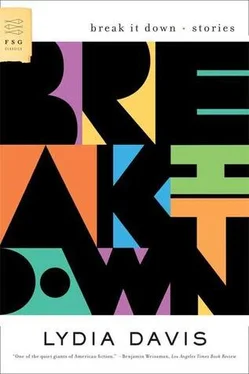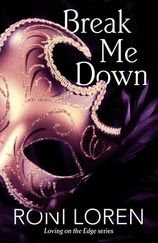His inconsistency. His inability to finish anything. His sudden terrifying feelings that nothing he did mattered. His realizations that what went on in the outside world had more substance than anything in his life.
Sometimes Wassilly had an inkling that he suffered from a deeper boredom than he could completely picture to himself. At these times, he would brood about the yearly allowance his father gave him: perhaps it was the most unfortunate thing that had ever happened to him; it might ruin what was left of his life. Yet one of the only things Wassilly could be sure of in himself was the recurring hope that things would not turn out as badly as they seemed to be.
His effect on the world was potentially astonishing.
2
Wassilly’s few real successes left him unmoved. Or rather, he could not bear to look at an article he had published and would allow his copies of the magazine to become covered with coffee stains and bent at the edges. He could not feel that his printed name was really his, or that the words on the page had really come from his own pen. His sister confirmed this feeling by remaining utterly silent about what he sent to her and also by treating him in exactly the same way she always had — as an agreeable but ineffectual person — when he felt his accomplishments should have made her see him in a new light. As some sort of retaliation, he occasionally wrote her long, deeply serious, and carefully phrased letters criticizing her personal life. These she would only mention months later and in an offhand way.
Not only did his published name and works seem to belong to someone else, but he derived little joy from anything he wrote. Once he had done it, it was out of his hands: it lay in a no-man’s-land. It was neutral. It did not speak to him. He wanted to be proud of himself, but felt only guilty — that he had not done more, or better. He envied people who set out to write a book, wrote it, and were pleased with it, and when it was published read it through again with fresh pleasure and turned easily to their next project. He felt only a frightening emptiness ahead of him, a vacancy where there should have been plans, and all his work grew out of impulses.
3
Wassilly was so extremely self-conscious that at times even the soft eyes of his dog made him blush with embarrassment when he tried to attract her attention by some stupid action. Talking to friends on the telephone he would put fantastic interpretations on what they said and respond with clumsy remarks which left them bewildered and nervous.
In strange company he spoke too softly to be heard, afraid that his remarks would be misunderstood. His confidence was further weakened by the fact that people looked puzzled every time he spoke, since they were trying to hear what he was saying, or did not even notice that he had spoken.
Sometimes he was not certain whether or not he should say goodbye to a stranger. He compromised by whispering and looking off to one side.
He did not know exactly when to thank his hostess after attending a dinner or a weekend party. In his uncertainty, he would thank her over and over again. It was as though he did not believe his words carried any weight and hoped to achieve through the effect of accumulation what one speech alone could not accomplish.
Wassilly was puzzled by the fact that these social responses did not come naturally to him, as they evidently did to others. He tried to learn them by watching other people closely, and was to some extent successful. But why was it such a difficult game? Sometimes he felt like a wolf-child who had only recently joined humanity.
4
Wassilly kept falling in love. Even with the dullest and plainest women, since he was so isolated, out there in the country, that his loneliness soon overcame his initial disgust; when he awoke from his madness he would feel disgusted again and embarrassed.
Wassilly had difficult relations with the girl at the grocery. He felt insulted by her cold manner. At home, he sometimes worked himself into a rage against her and made cutting remarks to her out loud. Then he would become ashamed of himself and try to adopt a more enlightened attitude, realizing that she was only an unattractive girl in a small town working in a grocery, someone with no hopes, no ideals, no future. This would restore his sense of proportion. Then he would remember a certain day the previous spring. At the shooting match on a hill above the town she had flaunted herself in a white hat and had not acknowledged his presence by so much as a nod, though all around him people were in the highest of spirits. As if this was not enough, he had taken a shot at the target on the next hilltop and the gun had recoiled and hurt him badly in the shoulder. Everyone had laughed. But after all, he said to himself, they were experienced hunters and he was only a fat intellectual.
5
There were days when nothing went well, in spite of his good intentions. He would mislay everything he needed for work — pen, notebook, cigarettes — then after settling down would be called away to the telephone or would run out of ink, would resume work and become suddenly hungry, would be delayed by an accident in the kitchen and sit down again too distracted to think.
Even after an hour of good work, the day might be lost: he would feel that a fruitful afternoon was opening up for him, and on the strength of that feeling would take a break, stretching his legs in the garden. He would look up at the sky, his attention would be caught by an unfamiliar bird, and he would take up his bird book and follow the bird over the wild acres outside his garden, plunging through the underbrush, scratching his face, and gathering burrs on his socks. Returning home, he would be too hot and tired to work, and with a sense of guilt would lie down to rest, reading something light.
6
Wassilly sometimes suspected that he worked on his articles only because he enjoyed writing with a fountain pen and black ink. He could not, for example, write anything good with a ballpoint pen. And his work did not go well if he worked with blue ink. When he and his sister played gin rummy together, he enjoyed keeping score — yet if all they had at hand was a pencil, he allowed his sister to keep score.
He liked to use his pen for other things as well: he made lists on scraps of white paper which he saved in a little pile. One list showed what he must remember to do when he visited the city again (Walk in the poorer neighborhoods, Take pictures of certain streets), another what he must do before he left the country (Visit the lake, Take a daylong walk). On another scrap of paper he had written out a tentative schedule for the perfect day, with times set aside for physical exercise, work, serious reading, and correspondence. Then there was a scheme he was outlining for a set of camping equipment which would include a writing table and a cookstove and weigh less than forty pounds. And there were more lists — for example, insoluble problems he was encountering in his study of languages, with suggestions for where to find the answers (and on the list of what he must do in the city he would then add: Visit the library).
But far from helping to organize his life, the lists became very confusing to him. Working on a list, he would send himself into a certain room to check a book title or the date and forget why he had gone there, distracted by the sight of another unfinished project. He received from himself a number of unrelated instructions which he could not remember, and spent entire mornings uselessly rushing from room to room. There was a strange gap between volition and action: sitting at his desk, before his work but not working, he dreamt of perfection in many things, and this exhilarated him. But when he took one step toward that perfection, he faltered in the face of its demands. There were mornings when he woke under a weight of discouragement so heavy that he could not get out of bed but lay there all day watching the sunlight move across the floor and up the wall.
Читать дальше












